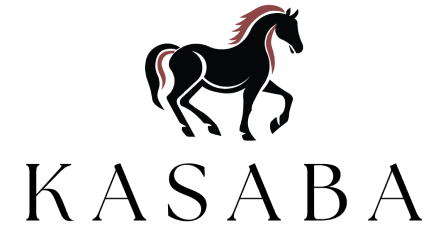Get to Know Your Material: Sabai Grass
Sabai grass is a biodegradable, durable, and naturally cultivated material used to create eco-friendly products like tote bags. Grown in the lush regions of India, it is harvested, sorted, sun-dried, and handwoven by skilled artisans without the use of toxic dyes. The result? Elegant, long-lasting accessories that combine sustainability with craftsmanship.
The Beauty of Sabai Grass
At Kasaba Home, we take pride in working directly with local artisan communities. Our mission is to preserve heritage craft traditions while championing ethical and sustainable production practices. Each piece is thoughtfully made, carrying the story of the people who craft it and the values we stand for.
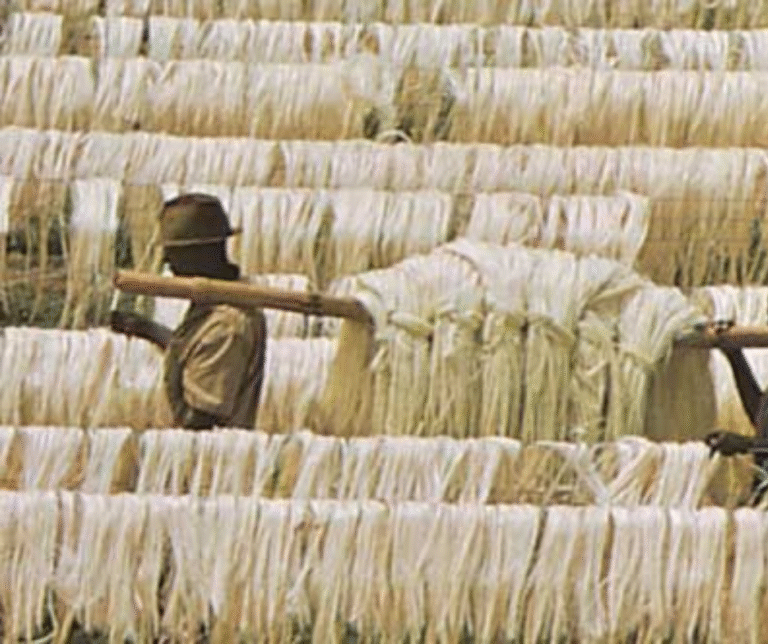
A Brief History
Sabai grass has long been used in eastern India and the Himalayan foothills to craft everyday items due to its strength and natural abundance. Over generations, artisans have developed a refined process that turns this humble grass into functional works of art—offering a sustainable alternative to mass-produced, synthetic materials.
How It’s Made: Step by Step
1. The Harvesting Process
Sabai grass is harvested manually at peak maturity to preserve its fiber strength. Farmers cut the grass close to the root to allow for regrowth, making it a renewable and eco-friendly resource. This method not only supports local biodiversity but also provides employment opportunities in rural communities.
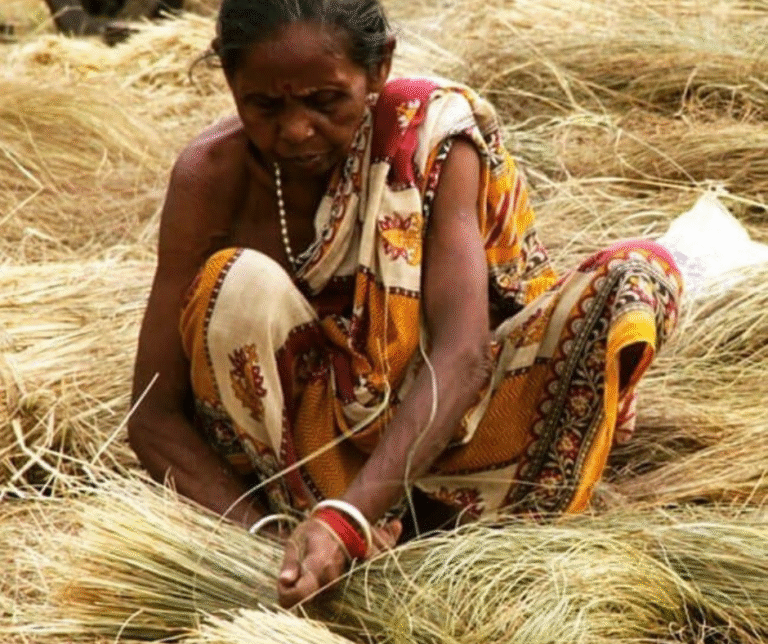
2. Sorting and Cleaning
Once harvested, the grass is sorted by length and thickness. Thicker fibers are reserved for sturdy items like tote bags, while finer ones are used for detailing. After sorting, the grass is thoroughly washed to remove dirt and impurities, ensuring durability in the final product.
3. Natural Sun-Drying
The cleaned grass is sun-dried over several days. This traditional method enhances the strength and flexibility of the fibers while preventing mold and decay. Sun-drying also ensures the material remains chemical-free and breathable.
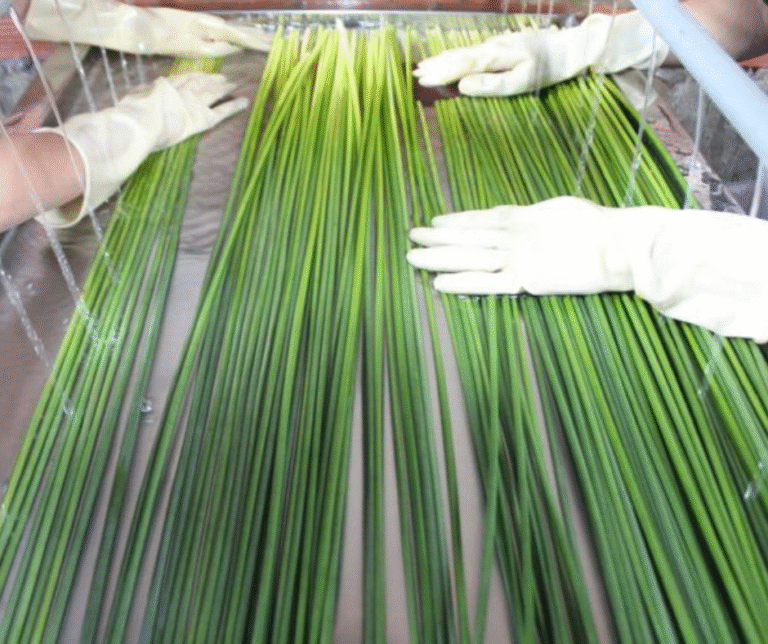
The Craftsmanship Behind Every Tote Bag
4. Handweaving and Stitching
Each tote bag is handcrafted using age-old coiling and weaving techniques passed down through generations. Artisans twist and bind the dried grass using cotton or jute threads to create lightweight yet durable structures. This process can take several hours or even days, depending on the design complexity.
At Kasaba Home, we are committed to preserving these heritage techniques by collaborating directly with artisans, ensuring fair wages and ethical practices throughout our supply chain.
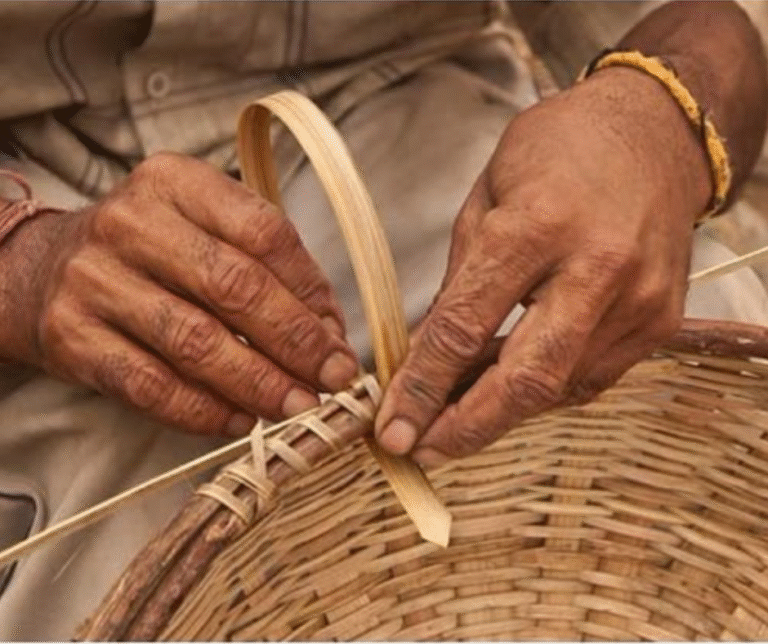
5. Natural Dyeing Techniques
We use only natural, plant-based dyes to color our sabai grass products. These include:
- Indigo for deep blues
- Turmeric for rich yellows
- Madder root for reds
- Tea leaves for earthy browns
The dyeing process involves soaking the grass in natural dye baths, followed by sun-drying. This method ensures that each product is non-toxic, environmentally safe, and beautifully colored without synthetic chemicals.
6. The Final Product
The finished tote bags are light, sturdy, and versatile, ideal for everyday use. Whether for market runs, work, or travel, each bag combines beauty with functionality. Every design carries a unique texture and story, showcasing the artisan’s touch.
At Kasaba Home, every product reflects our belief in thoughtful design, responsible production, and the power of craft to transform lives and homes.
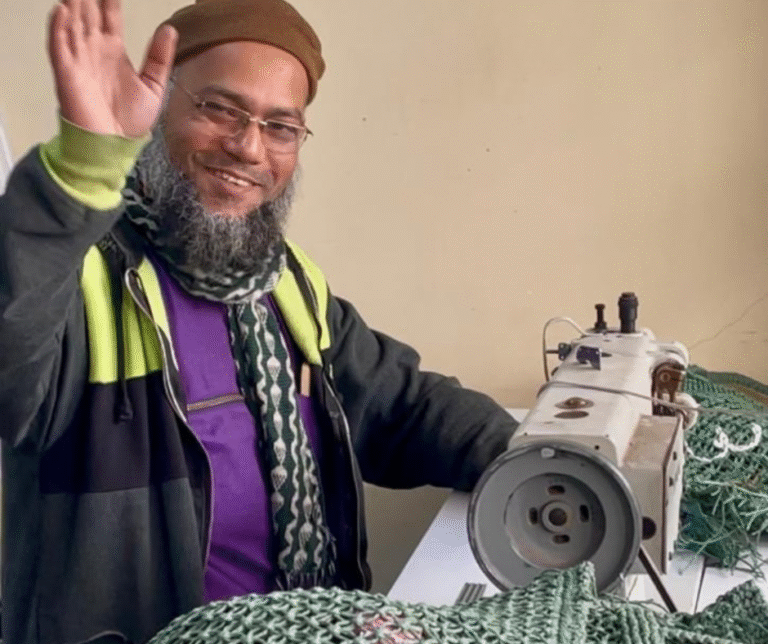
Discover the Kasaba Sabai Grass Tote
Celebrate the harmony of nature, tradition, and design with our handcrafted Sabai Grass Tote Bag: available in two elegant colorways: Natural and Green. Whether you lean toward earthy minimalism or a fresh pop of color, each piece reflects thoughtful design and meaningful craftsmanship.
When you shop with Kasaba Home, you’re choosing more than a bag, you’re supporting artisan communities, heritage craft, and a cleaner planet.
👉 Shop the Sabai Grass Tote Bag [https://kasabahome.com/product/kasaba-tote-handwoven-sabai-grass-tote/]
FAQ’s
Q1: How long do sabai grass tote bags last?
With proper care, they can last for years. Avoid soaking and store in a dry place.
Q2: Are sabai grass tote bags waterproof?
They are naturally water-resistant but not waterproof. Prolonged exposure to water may damage the fibers.
Q3: Do these products use synthetic dyes?
No. All dyes used are natural, making the products safe for both the environment and users.
Q4: How do I clean my tote bag?
Wipe with a dry or slightly damp cloth. Avoid washing or soaking.
Q5: Where can I purchase authentic sabai grass tote bags?
You can shop directly on our website at Kasaba Home.
Q6: How is this eco-friendly?
Sabai grass is biodegradable and renewable. Our production supports sustainable livelihoods and reduces plastic waste.
